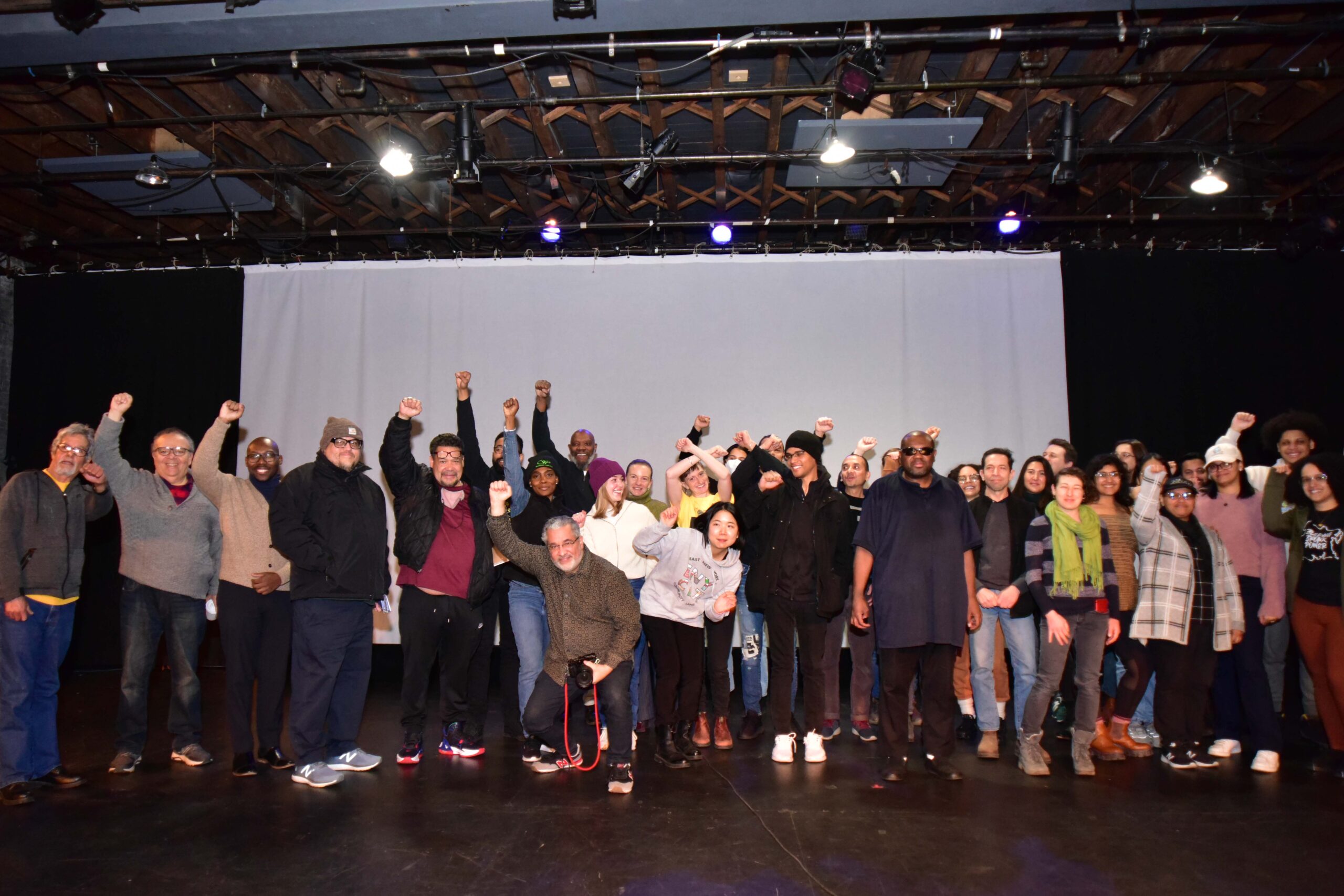“Public land for public good.” That was the theme of a Community Land Trust town hall at Pregones Theater in Mott Haven on Feb. 25.
“Only negative things have been coming from the type of development that’s been happening in the Bronx and all over the city,” said Mychal Johnson, a founding member of South Bronx Unite, referring to luxury development along the South Bronx waterfront.
“We want to make sure that land isn’t used for real estate speculation, and isn’t used to just reap enormous profit for people who don’t even live in our communities,” said Arif Ullah, South Bronx Unite’s executive director.
Community Land Trusts are nonprofit organizations “set up to collectively own and steward land for a community,” explained Sabina Sethi Unni, a fellow at Melrose-based Nos Quedamos. Residents and community members, such as those who serve on Nos Quedamos’ board, are the ones who should make land use decisions affecting their own communities.
“The Community Land Trust model is really rooted in democratic processes,” said Ullah, because decisions are made directly by community members.
South Bronx Unite and Nos Quedamos are among community-based organizations, along with the city-wide New Economy Project, advocating to the City Council for a package of bills collectively known as the NYC Community Land Act.
The Community Land Initiative is holding a series of events across the five boroughs to raise awareness for their proposals. The next one is in Queens on March 7.
The bills include two measures that would give Community Land Trusts and other nonprofits the first opportunity to purchase multifamily buildings when a landlord puts them on the market, and would do the same for city-owned land being disposed of.
“We hope that would give [land trusts] a leg up in the capitalist market,” said Elise Goldin, a campaign organizer with the New Economy Project.
In many cases when the city sells public land, it’s transferred for just $1, to both for-profit developers and nonprofits.
Another measure, the Tenant Opportunity to Purchase Resolution, would encourage state lawmakers to act on legislation allowing tenants to collectively buy their apartment building when a landlord sells.
Community land trusts also hope to get rid of the city’s tax lien sale, which sells the liens of unpaid property taxes from small homeowners to investors. Many consider that measure, which expired last year, to be a discriminatory practice that hurts Black and brown property owners.
“There is no plan to do a tax lien sale again according to the city,” said Goldin, adding that a proposal “to create this new equitable system which has opportunities for homeowners or property owners … to choose to work with a [Community Land Trust] and restructure their loans and still retain some equity,” is in the works.
In a low-income area like the South Bronx, where Community Boards 1 and 2 have a median household income of $30,171 and close to 50% of households are considered rent-burdened, local activists are hoping these bills, paired with the Community Land Trust model, will help protect area tenants from being displaced by rising rents.
The land trust campaign is not just about creating affordable housing – it’s also aimed at ensuring community control over land or green spaces that house community gardens like one where Thomas Reyes, a local gardener at the Rainbow Garden of Life and Health, volunteers.
South Bronx Unite, through its Mott Haven-Port Morris Community Land Stewards, has a proposal to create its own waterfront park.
Reyes says that recreational areas are urgently needed in the South Bronx.
“Building housing’s great, but where am I gonna go?” he said. “Where am I gonna jog? Where am I gonna sit in the park?”

